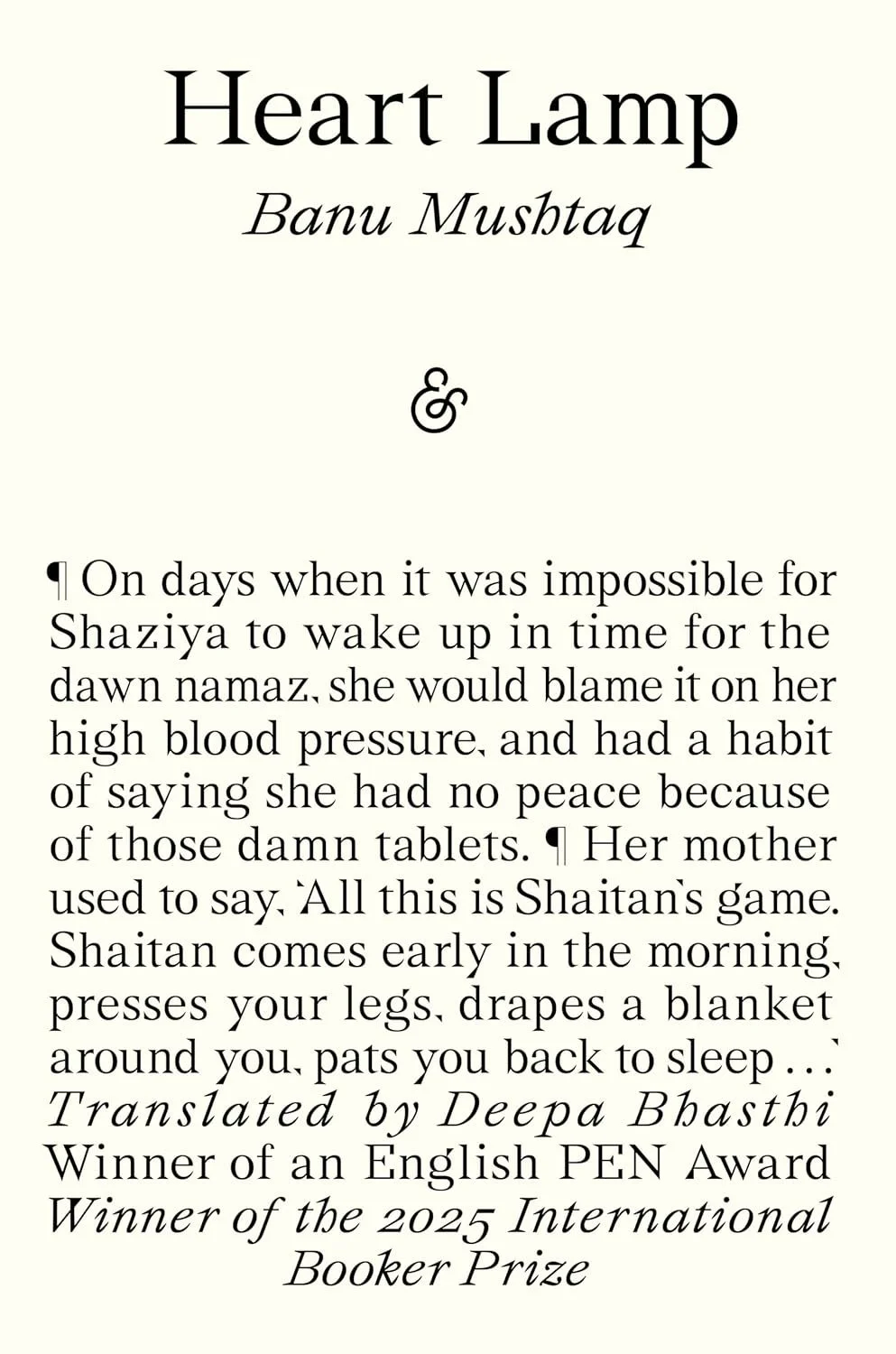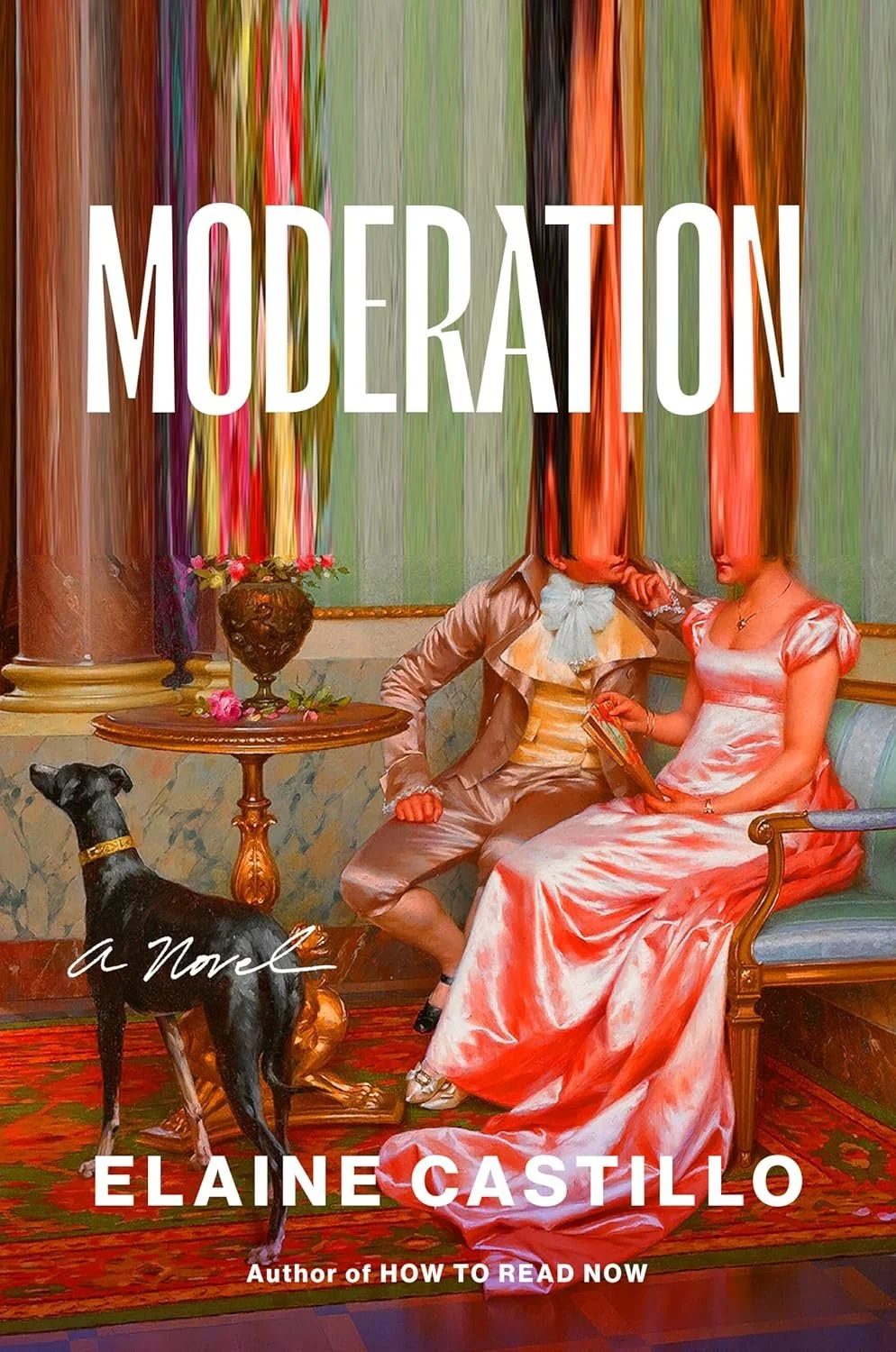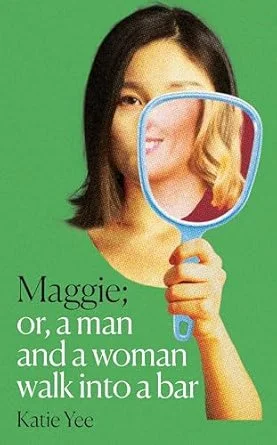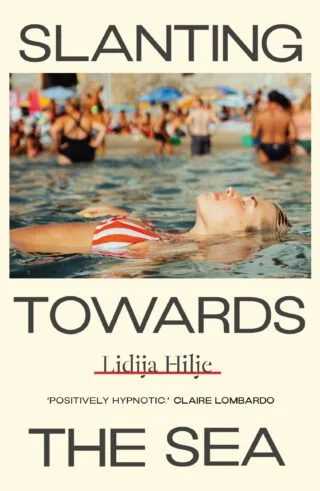Heart Lamp, Banu Mushtaq
Winner of the International Booker Prize
A little over two weeks ago, Heart Lamp, written by Banu Mushtaq and translated by Deepa Bhasti, took home this year's International Booker Prize. Heart Lamp’s historic win celebrates a literature that has transcended many barriers to gain recognition, becoming the first short story collection to win the International Booker Prize and the first novel translated from Kannada (a Dravidian language spoken predominantly in the state of Karnataka) to have been recognised by this prestigious award. Among these magnificent milestones, it is with great pleasure to add that Deepa Bhasti is the first Indian translator to win the International Booker Prize. All in all, this powerhouse of a work, published by And Other Stories, showcases a magnitude of talent and resistance across various fronts, while furthering the representation of minorities and propounding South Asian voices.
Heart Lamp is a collection of twelve short stories that offer a glimpse into the emotional and social worlds of Muslim women in Karnataka, southern India. Originally written in Kannada, the stories are seeped in the complexities of gender, faith, familial duty and personal longing. Mushtaq’s narratives are filled with bandaya – rebellion, protest, resistance to authority, revolution and its adjacent ideas – often revealing the unspoken tensions simmering beneath the surface of domestic life.
The beauty of Heart Lamp lies in its quiet, layered storytelling. Mushtaq doesn’t rely on overt drama or sweeping statements. Instead, her characters live in the silence between words: women navigating marriage, widowhood, desire, and community judgment with dignity and often, resignation. These immersive and vivid stories depict real life women and familiar settings with accuracy and the tenderness required to capture one’s lived experience. Some of my favourite stories include ‘Red Lungi’, the titular ‘Heart Lamp’, and ‘The Shroud’.
Of all the shortlisted titles on this year’s International Booker Prize, the translation process in Heart Lamp is the most fascinating. You will not find italicised words, footnotes, or an index; indeed, Heart Lamp invites readers to immerse themselves into a new cultural context and put in the work. Bhasthi’s seamless and impressive translation retains the lyrical restraint of Mushtaq’s prose, allowing the stories to breathe in their original emotional register. To further recreate this cultural and dialectic context, she preserves words and phrases in the original Kannada, “translating Heart Lamp”, as she says, “with an accent.”
The stories in Heart Lamp illustrate thirty years in the making, of the experiences of women throughout time. Its stories exhibit the vulnerability yet resilience of womanhood and sisterhood; there is a universality in the shared experiences of women that transcends culture and language.
Editorial Picks




